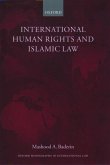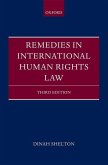In the post-September 11th era, liberal democracies face the question of whether, and if so to what extent, they should change the relationship between liberty and security. This book explores how three major liberal democratic states - the United States, the United Kingdom and Germany - have approached this challenge by analysing the human rights impacts of their anti-terrorism laws and practices. The analysis reveals that the most far-reaching restrictions of liberty have been
imposed on minorities: foreign nationals and certain 'racial', ethnic and religious groups.
This Disparate treatment raises complex issues concerning the human right to non-discrimination. Differential treatment on the basis of nationality, national origin, 'race' or religion is only compatible with the right to non-discrimination if there are objective and reasonable grounds for it. The author evaluates contemporary anti-terrorism efforts for their compliance with this requirement. Is there, in the context of the current 'war on terror', sufficient justification for applying powers
of preventive detention or trial by special tribunal only to foreign nationals? Are law enforcement methods or immigration policies that single out people for special scrutiny based on their national origin, or their ethnic or religious appearance, a suitable and proportionate means of countering
terrorism? The concluding part of the book argues that, in the long term, discriminatory anti-terrorism measures will have impacts beyond their original scope and fundamentally reshape ordinary legal regimes and law enforcement methods.
Hinweis: Dieser Artikel kann nur an eine deutsche Lieferadresse ausgeliefert werden.
imposed on minorities: foreign nationals and certain 'racial', ethnic and religious groups.
This Disparate treatment raises complex issues concerning the human right to non-discrimination. Differential treatment on the basis of nationality, national origin, 'race' or religion is only compatible with the right to non-discrimination if there are objective and reasonable grounds for it. The author evaluates contemporary anti-terrorism efforts for their compliance with this requirement. Is there, in the context of the current 'war on terror', sufficient justification for applying powers
of preventive detention or trial by special tribunal only to foreign nationals? Are law enforcement methods or immigration policies that single out people for special scrutiny based on their national origin, or their ethnic or religious appearance, a suitable and proportionate means of countering
terrorism? The concluding part of the book argues that, in the long term, discriminatory anti-terrorism measures will have impacts beyond their original scope and fundamentally reshape ordinary legal regimes and law enforcement methods.
Hinweis: Dieser Artikel kann nur an eine deutsche Lieferadresse ausgeliefert werden.








